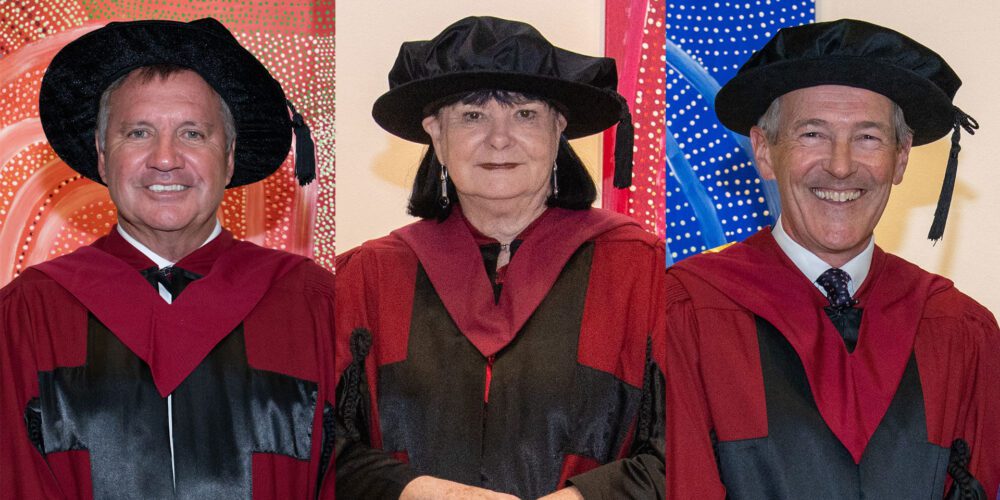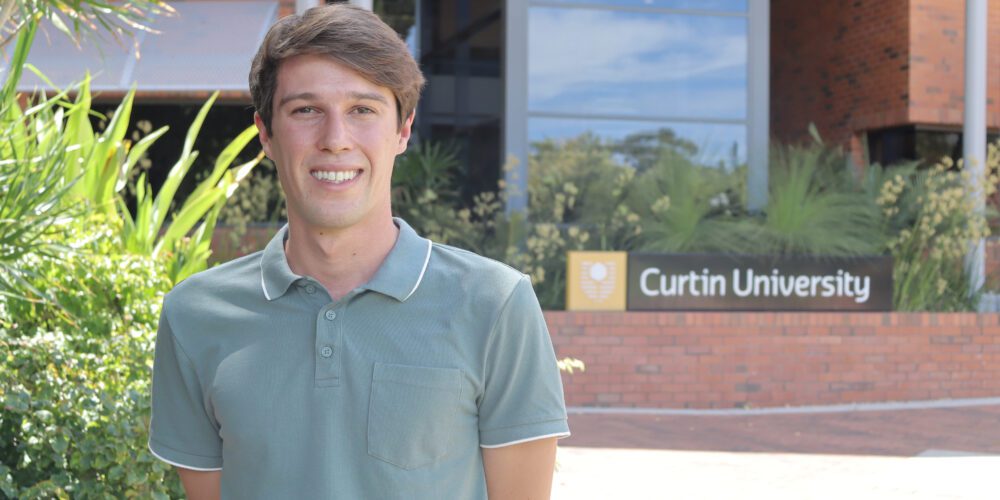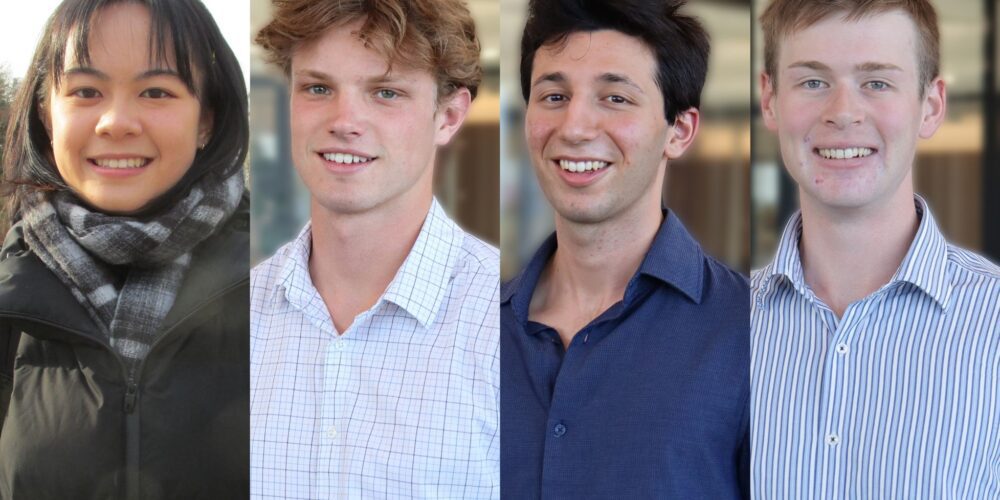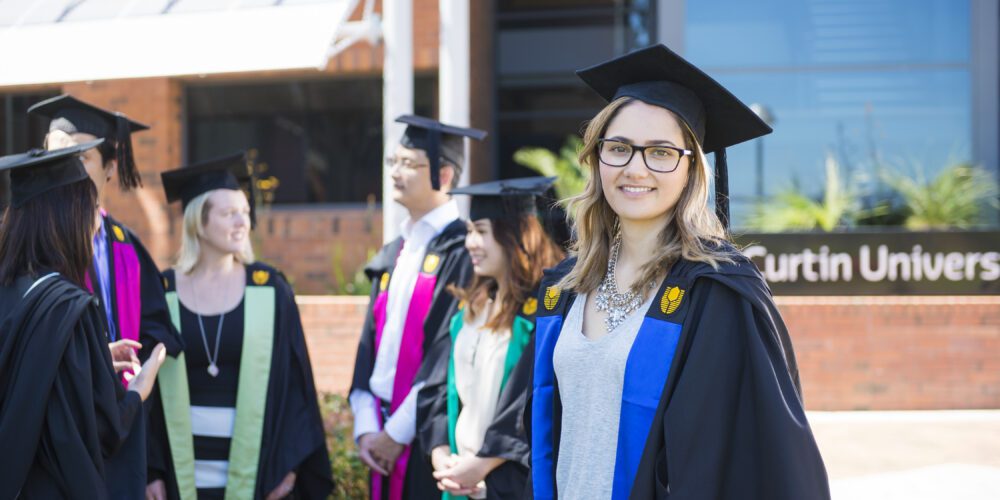Groundbreaking spacecraft technology wins Curtinnovation 2024
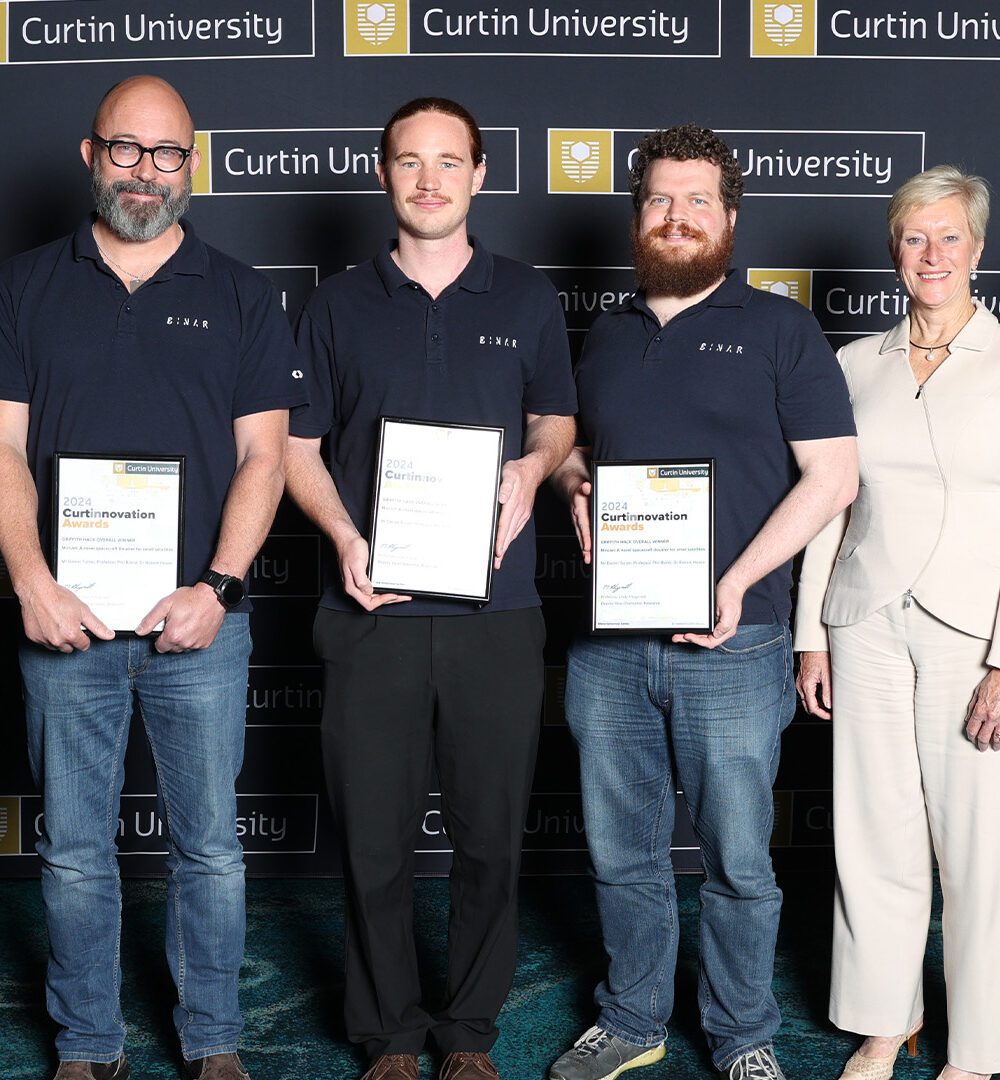
Groundbreaking spacecraft technology, small enough to fit in the palm of your hand yet powerful enough to drive small satellite missions, has been crowned the Griffith Hack Overall Winner at the 2024 Curtinnovation Awards.
The miniature spacecraft thruster, known as MiniJet, was developed by mechanical engineer Daniel Turner from Curtin’s School of Earth and Planetary Sciences and is the first Australian-built propulsion innovation specifically targeted at the rapidly growing small satellite market.
The MiniJet thruster allows small satellites to stay in space longer, reach new orbits, and even return to Earth after their missions to help reduce space debris. The project was one of seven impressive innovations recognised at this year’s Curtinnovation Awards.
Curtin Deputy Vice-Chancellor, Research, John Curtin Distinguished Professor Melinda Fitzgerald congratulated all the winning teams recognised in their respective categories for transforming their exceptional research into real-world initiatives to benefit the wider community.
“This year’s winners have truly set a new standard of excellence and are a shining example of the world-class research happening right here at Curtin,” Professor Fitzgerald said.
“Each of these projects not only tackles complex challenges but also paves the way for a better future, whether that’s through advancing space technology, improving healthcare outcomes or enhancing educational experiences.”
The Curtinnovation Awards are held annually to recognise and celebrate individuals and teams associated with Curtin through research, study, work or partnership developing innovations that positively impact society.
The 2024 winners include:
- Griffith Hack Overall winner – MiniJet: A novel spacecraft thruster for small satellites.
Small satellites have emerged as an economically effective means to perform commercial and scientific research; however, the majority of these satellites lack propulsion capabilities which limit them to Low Earth Orbit. The MiniJet is a highly miniaturised, novel satellite thruster for the small satellite platform that’s more cost-efficient and environmentally sustainable than pre-existing solutions. Its unique design featuring intricate lattice structures made from a unique copper alloy within the thruster, significantly enhances its thermal efficiency despite being the size of a AA battery. As a result, the thruster enables small satellites to stay in space for longer, reach new orbits, and deorbit to comply with new space debris mitigation regulations. The MiniJet is currently part of the design for a propulsion system that would be the first in Australia capable of taking a satellite to the moon.
Team: Daniel Turner, Dr Robert Howie and John Curtin Distinguished Professor Phil Bland.
Video: Watch team video here.
- Curtin Entrepreneurs Award winner (sponsored by the Malka Foundation) – Edison Collab: An AI-tool taking the work out of workshops.
By utilising artificial intelligence, Edison Collab streamlines the process for facilitators to capture workshop feedback, comments and discussion points. In a matter of seconds, Edison Collab can produce slick, custom PowerPoint presentations and reports for workshop facilitators and coordinators to share with their clients, providing them more time for completing other tasks and managing stakeholder relations.
Team: Samuel Cunningham and Sean Oldenburger.
Video: Watch the team video here.
- Business & Law Award winner – CeSL: Chatbot to Encourage Self-Regulated Learning.
CeSL is an AI chatbot that seeks to encourage students to learn how to navigate the university system themselves through self-regulated learning. What sets CeSL apart from other chatbots in the market is its integration of advanced natural language processing capabilities with self-determination theory. This meets the needs of universities to provide effective, efficient student support while prioritising human agency as well as responsibly and pedagogically appropriate interactions. In doing so, students are provided with a more immediate, tailored experience while reducing the administrative burden on staff.
Team: Associate Professor Anna Bunn, Dr Abhijeet Singh, Associate Professor Nik Thompson, Professor Rachel Sheffield, Craig Sims and Jack Moursounidis.
Video: Watch the team video here.
- Health Sciences Award winner – ChemoDX: Early Detection of Chemotherapy Drug Response in Ovarian Cancer.
Platinum-based chemotherapies are commonly used in the treatment of various advanced cancers. However, studies indicate that up to half of all patients may not respond effectively to these treatments.
With an initial focus on ovarian cancer patients, the ChemoDX team have developed a diagnostic test to determine a patient’s likely response to platinum chemotherapy before treatment commences. They are using state-of-the art transcriptomics and AI analyses to enable more in-depth examination of the tumour microenvironment. These predictive biomarkers, derived from tumour biopsies, are then able to provide clinicians with a solution to better tailor the treatment plans of their patient’s diagnosed with advanced cancer.
Team: Dr Yu Yu, Professor Paul Cohen, Dr Adeline Tan and Alishum Ali.
Video: Watch the team video here.
- Science and Engineering Award winner – SMAAT: Speech Movement and Acoustic Analysis Tracking.
Speech Movement and Acoustic Analysis Tracking, or SMAAT, is a novel software application combining state-of-the-art facial landmark detection and tracking algorithms to support speech pathologists in diagnosing speech sound disorders with a high degree of accuracy. Using audio-video recordings of a child repeating a wordlist containing 40 words and four phrases, the software can score a child’s speech movements against a set of clinically established criteria. Based on data collected on more than 60 adults and 200 children with typically developing speech and language skills, the clinician can benchmark a child’s performance against their peers and use it to inform diagnosis, select the most appropriate intervention and show treatment progress over time.
Team: Dr Roslyn Ward, Associate Professor Petra Helmholz, Dr Richard Palmer, Geoff Strauss and the broader SMAAT team.
Video: Watch the team video here.
- Humanities Award winner – Moombaki Noongar Cultural Virtual Quest.
Moombaki VR is an educational experience that blends virtual reality with classroom teachings centred on Noongar languages, culture and history. It consists of a comprehensive Noongar curriculum accompanied by various resources for diverse learning styles, including class activity sheets and PowerPoint presentations, a mobile game playable on iPads, a virtual reality game, and an immersive on-country camp experience.
In doing so, the team are improving outcomes for Aboriginal children, especially those in urban schools, boosting their cultural knowledge and self-esteem by reconnecting them to culture, land, and country.
Team: Professor Cheryl Kickett-Tucker, Sophie Karangaroa, Taylor-Jayde Gray, Jonathan Pillai, Maxmillian Wright, Noongar community and students of Weeip Maali Boodja, Curtin School of Design and Built Environment students, Moombaki Chief and Partner Investigators and Moombaki Community Partners.
Video: Watch the team video here.
- Trailblazer Award winner – Maintenance Schedule Optimiser: An optimisation engine that automates shutdown maintenance schedules.
The demand for automated maintenance scheduling technology is significant across asset-intensive industries, particularly in the mining and mineral resources sectors. Although off-the-shelf software exists, these tools rely on simple algorithms and often produce low-quality schedules which require significant manual efforts to improve.
A research team from Curtin has developed the Maintenance Schedule Optimiser with significant advantages over existing solutions, including fast run time, the ability to handle large schedules, and an advanced algorithm that has been shown to reduce downtime by 25 per cent and headcount by 20 per cent for large shutdowns, bringing systems back online faster and increasing productivity.
Team: Dr Hoa Bui, Professor Ryan Loxton, Dr Elham Mardaneh and Alex Massen-Hane.
Video: Watch the team video here.
